Atrial and mitral are the two main valves in the human heart. These valves have a special function to control or regulate the blood flow in the heart.
Atrial valve replacement and mitral valve replacement are required because of a defect in the functioning of these valves. When the valves do not open or close properly, it affects the flow of blood through the heart.
The defect may arise because of many reasons. But the two main reasons are as follows:
The decision to conduct valve replacement depends on the clinical status of the patients as per diagnostic reports and clinical symptoms. Sometimes, the patient is a candidate for aortic valve repair or mitral valve repair and does not require replacement of the valve. Therefore, the decision is made after the physical assessment and evaluation of the patient.
The following factors affect AVR cost and MVR cost:
Treatment cost
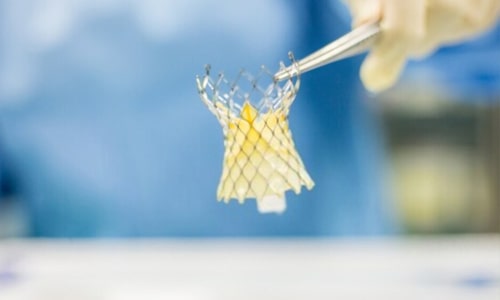
Some of the key inclusions which we provide as additional benefits of the package are:
We offer packages at reasonable pricing that include a variety of additional advantages, making it a better deal than paying for individual perks at the hospital. AVR/MVR Valve Replacement Surgery is a heart valve repair procedure, which is performed to correct heart valves that are not functioning properly. Aortic Valve Replacement is an open heart technique, which involves leakage or narrowing of the aortic valve. Mitral Valve Repair is again an open heart procedure used to treat regurgitation (leakage) or stenosis (narrowing) of the mitral valve. Therefore, to explain AVR/MVR in simple terms, it is a heart condition developed when normal flow of blood through the arteries and vessels through your heart is interrupted., For AVR/MVR Valve Replacement Surgery in India, we are providing the best all-inclusive discounted package at Pushpawati Singhania Research Institute with some additional benefits.

Some of the key inclusions which we provide as additional benefits of the package are:
With us, you are sure to receive all the benefits at competitive prices which is a better choice than paying actual hospital costs. AVR/MVR Valve Replacement Surgery is a heart valve repair procedure, which is performed to correct heart valves that are not functioning properly. Aortic Valve Replacement is an open heart technique, which involves leakage or narrowing of the aortic valve. Mitral Valve Repair is again an open heart procedure used to treat regurgitation (leakage) or stenosis (narrowing) of the mitral valve. Therefore, to explain AVR/MVR in simple terms, it is a heart condition developed when normal flow of blood through the arteries and vessels through your heart is interrupted., For AVR/MVR Valve Replacement Surgery in India, we are providing the best all-inclusive discounted package at Sharda Hospital with some additional benefits.
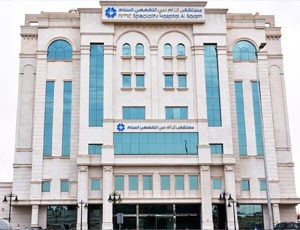
Apart from in-detail treatment procedures available, NMC Specialty Hospital Al Salam located in Riyadh, Saudi Arabia has a wide variety of facilities available for International Patients. Some of the facilities which are provided by them are Accommodation, Airport Transfer, Choice of Meals, Interpreter, SIM, TV inside room. Also listed below are some of the most prominent infrastructural details:
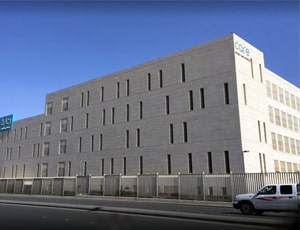
Apart from in-detail treatment procedures available, Riyadh Care Hospital located in Riyadh, Saudi Arabia has a wide variety of facilities available for International Patients. Some of the facilities which are provided by them are Accommodation, Airport Transfer, Choice of Meals, Interpreter, SIM, TV inside room. Also listed below are some of the most prominent infrastructural details:
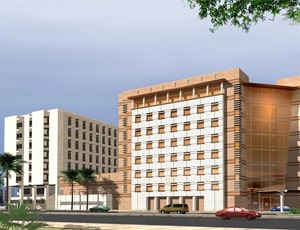
Apart from in-detail treatment procedures available, Care National Hospital located in Riyadh, Saudi Arabia has a wide variety of facilities available for International Patients. Some of the facilities which are provided by them are Accommodation, Airport Transfer, Choice of Meals. Also listed below are some of the most prominent infrastructural details:

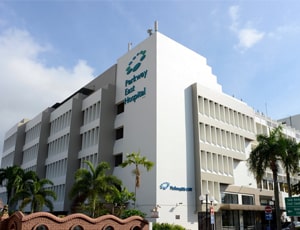
Parkway East Hospital located in Joo Chiat Pl, Singapore is accredited by JCI. Also listed below are some of the most prominent infrastructural details:
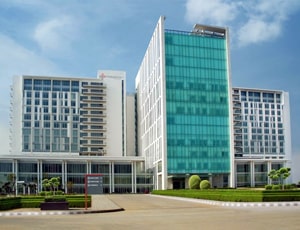
Types of Cardiac Valve Replacement in Medanta - The Medicity and its associated cost
| Treatment Option | Approximate Cost Range (USD) | Approximate Cost Range (INR) |
|---|---|---|
| Cardiac Valve Replacement (Overall) | 7272 - 15772 | 588509 - 1293551 |
| Aortic Valve Replacement | 7630 - 12647 | 606982 - 1005178 |
| Mitral Valve Replacement | 7752 - 13392 | 637027 - 1113934 |
| Pulmonary Valve Replacement | 7428 - 11968 | 604940 - 953699 |
| Ross Procedure | 10760 - 17113 | 863205 - 1379497 |
| Transcatheter Valve | 9164 - 14746 | 732579 - 1207422 |
| Double Valve Replacement | 11844 - 18448 | 981759 - 1526596 |
| Tricuspid Valve Replacement | 9697 - 16068 | 770340 - 1318215 |
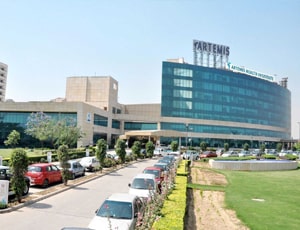
Types of Cardiac Valve Replacement in Artemis Health Institute and its associated cost
| Treatment Option | Approximate Cost Range (USD) | Approximate Cost Range (INR) |
|---|---|---|
| Cardiac Valve Replacement (Overall) | 7285 - 15699 | 608727 - 1306981 |
| Aortic Valve Replacement | 7641 - 12567 | 613677 - 1007649 |
| Mitral Valve Replacement | 8016 - 13215 | 651624 - 1085333 |
| Pulmonary Valve Replacement | 7247 - 11741 | 595672 - 978637 |
| Ross Procedure | 10533 - 17109 | 895289 - 1395130 |
| Transcatheter Valve | 9097 - 14844 | 732820 - 1181578 |
| Double Valve Replacement | 11862 - 18703 | 986799 - 1547379 |
| Tricuspid Valve Replacement | 9721 - 15840 | 786590 - 1294514 |
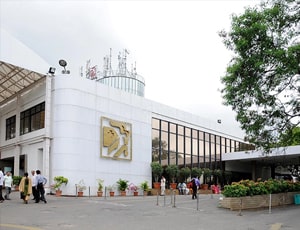
Types of Cardiac Valve Replacement in Apollo Hospitals and its associated cost
| Treatment Option | Approximate Cost Range (USD) | Approximate Cost Range (INR) |
|---|---|---|
| Cardiac Valve Replacement (Overall) | 7405 - 16007 | 587639 - 1290898 |
| Aortic Valve Replacement | 7552 - 12480 | 629259 - 1013359 |
| Mitral Valve Replacement | 7794 - 13277 | 636764 - 1087818 |
| Pulmonary Valve Replacement | 7215 - 11925 | 611307 - 956744 |
| Ross Procedure | 10721 - 16523 | 888521 - 1409914 |
| Transcatheter Valve | 8815 - 14542 | 739428 - 1222184 |
| Double Valve Replacement | 11702 - 18967 | 977758 - 1531444 |
| Tricuspid Valve Replacement | 9661 - 15857 | 767283 - 1300611 |
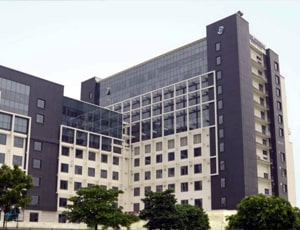
Types of Cardiac Valve Replacement in Venkateshwar Hospital and its associated cost
| Treatment Option | Approximate Cost Range (USD) | Approximate Cost Range (INR) |
|---|---|---|
| Cardiac Valve Replacement (Overall) | 6580 - 14175 | 543394 - 1169555 |
| Aortic Valve Replacement | 6790 - 11191 | 557504 - 911466 |
| Mitral Valve Replacement | 7134 - 12122 | 582179 - 996924 |
| Pulmonary Valve Replacement | 6603 - 10635 | 541204 - 875031 |
| Ross Procedure | 9596 - 15264 | 788983 - 1246663 |
| Transcatheter Valve | 8155 - 13259 | 663950 - 1080288 |
| Double Valve Replacement | 10660 - 16711 | 874988 - 1367148 |
| Tricuspid Valve Replacement | 8618 - 14248 | 707462 - 1163552 |
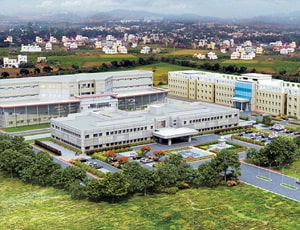
Types of Cardiac Valve Replacement in Global Health City and its associated cost
| Treatment Option | Approximate Cost Range (USD) | Approximate Cost Range (INR) |
|---|---|---|
| Cardiac Valve Replacement (Overall) | 7193 - 15871 | 597518 - 1300368 |
| Aortic Valve Replacement | 7460 - 12621 | 619350 - 998252 |
| Mitral Valve Replacement | 7715 - 13515 | 642363 - 1083686 |
| Pulmonary Valve Replacement | 7305 - 11798 | 589498 - 981325 |
| Ross Procedure | 10635 - 17163 | 892868 - 1392920 |
| Transcatheter Valve | 8993 - 14644 | 753485 - 1225594 |
| Double Valve Replacement | 11901 - 18860 | 964506 - 1519842 |
| Tricuspid Valve Replacement | 9492 - 15964 | 780663 - 1276153 |
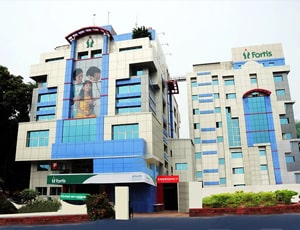
Types of Cardiac Valve Replacement in Fortis Malar Hospital and its associated cost
| Treatment Option | Approximate Cost Range (USD) | Approximate Cost Range (INR) |
|---|---|---|
| Cardiac Valve Replacement (Overall) | 6618 - 14267 | 538590 - 1162474 |
| Aortic Valve Replacement | 6783 - 11137 | 556509 - 912094 |
| Mitral Valve Replacement | 7099 - 12160 | 584673 - 1003673 |
| Pulmonary Valve Replacement | 6615 - 10668 | 540932 - 876723 |
| Ross Procedure | 9672 - 15253 | 792871 - 1246726 |
| Transcatheter Valve | 8091 - 13167 | 663097 - 1077343 |
| Double Valve Replacement | 10655 - 16757 | 875630 - 1366633 |
| Tricuspid Valve Replacement | 8615 - 14189 | 708481 - 1169760 |
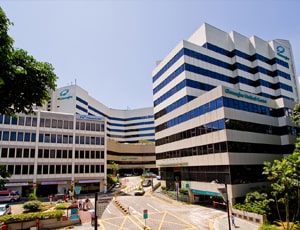
Gleneagles Hospital located in Napier Road, Singapore is accredited by JCI. Also listed below are some of the most prominent infrastructural details:
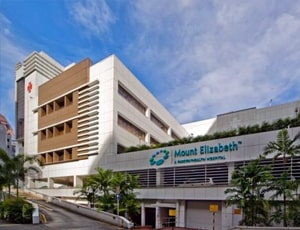
Mount Elizabeth Hospital located in Singapore, Singapore is accredited by JCI. Also listed below are some of the most prominent infrastructural details:

Types of Cardiac Valve Replacement in Sterling Wockhardt Hospital and its associated cost
| Treatment Option | Approximate Cost Range (USD) | Approximate Cost Range (INR) |
|---|---|---|
| Cardiac Valve Replacement (Overall) | 6621 - 14246 | 541207 - 1169621 |
| Aortic Valve Replacement | 6780 - 11115 | 557661 - 918241 |
| Mitral Valve Replacement | 7075 - 12191 | 583884 - 1001751 |
| Pulmonary Valve Replacement | 6565 - 10665 | 539675 - 876814 |
| Ross Procedure | 9668 - 15183 | 790313 - 1249483 |
| Transcatheter Valve | 8101 - 13249 | 662770 - 1078957 |
| Double Valve Replacement | 10630 - 16739 | 873437 - 1374061 |
| Tricuspid Valve Replacement | 8624 - 14274 | 709784 - 1166292 |
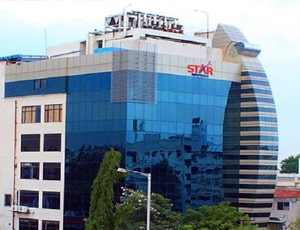
Types of Cardiac Valve Replacement in Star Hospitals and its associated cost
| Treatment Option | Approximate Cost Range (USD) | Approximate Cost Range (INR) |
|---|---|---|
| Cardiac Valve Replacement (Overall) | 5987 - 13065 | 495762 - 1080886 |
| Aortic Valve Replacement | 6230 - 10156 | 518516 - 841159 |
| Mitral Valve Replacement | 6639 - 11182 | 528142 - 920550 |
| Pulmonary Valve Replacement | 6091 - 9889 | 502851 - 814010 |
| Ross Procedure | 8921 - 14168 | 737703 - 1160245 |
| Transcatheter Valve | 7524 - 12151 | 613774 - 1010819 |
| Double Valve Replacement | 9746 - 15621 | 813597 - 1258546 |
| Tricuspid Valve Replacement | 8008 - 12971 | 644012 - 1074067 |
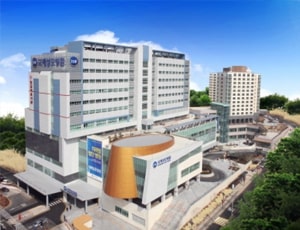
International St. Mary's Hospital located in Seoul, South Korea is accredited by JCI. Also listed below are some of the most prominent infrastructural details:
Heart valve surgery is a procedure performed to address heart valve disease, a condition characterized by malfunctioning of one or more of the four heart valves responsible for maintaining proper blood flow through the heart. The four valves include the mitral, tricuspid, pulmonary, and aortic valves, each equipped with flaps (leaflets for the mitral and tricuspid valves, and cusps for the aortic and pulmonary valves) that regulate blood flow direction during each heartbeat. When these valves fail to open and close correctly, it disrupts blood flow within the heart and to the body.
Valve replacement includes four procedures:
The aortic valve and the mitral valve replacements are the most common. Pulmonary and tricuspid valve replacements are uncommon in adults.
Heart valve surgery aims to address heart valve disease, which typically presents in two forms:
Valve Stenosis: This occurs when a valve becomes narrowed, restricting blood flow.
Valve Regurgitation: This condition involves a leak in a valve that allows blood to flow backward, disrupting normal circulation.
The following are the types of Cardiac Valve Replacement:
Valve replacement or repair can be performed through various methods, depending on the specific issue. The most common types of valve replacements include:
Aortic Valve Replacement (AVR):
During this surgical procedure, an incision is made through the sternum, allowing access to the heart. The patient is placed on a cardiopulmonary bypass machine (heart-lung machine), which supports breathing and circulates blood while the surgeon works. The diseased aortic valve is removed, and either a mechanical or tissue valve is implanted. After ensuring proper placement of the new valve and closing the aorta, the patient is taken off the bypass machine. A transesophageal echocardiogram may be used to confirm the functionality of the new valve.
Mitral Valve Replacement (MVR):
This procedure involves giving the patient general anesthesia before making an incision either horizontally under the left breast or vertically through the sternum. The heart is exposed, and a cannula is inserted to direct blood to the heart-lung machine for bypass. The mitral valve is accessed by making an incision in the left atrium, and the valve is replaced. The left atrium is then closed, and the patient is transferred to the intensive care unit for postoperative care.
Following cardiac valve replacement, patients typically undergo a recovery period characterized by careful monitoring for signs of infection, effective pain management, and a gradual return to normal activities. Short-term limitations on strenuous activities may be advised, and participation in a cardiac rehabilitation program may be recommended to facilitate overall recovery.
Regular follow-up appointments with healthcare professionals are essential to monitor progress, address any concerns, and ensure a seamless transition back to daily life while promoting optimal heart health.
Ask your healthcare adviser for the best multiple options and choose the one that meets your expectations
Different hospitals have different pricing policy when it comes to the cost of Cardiac Valve Replacement in Saudi Arabia. The top hospitals for Cardiac Valve Replacement in Saudi Arabia covers all the expenses related to the pre-surgery investigations of the candidate. The Cardiac Valve Replacement cost in Saudi Arabia includes the cost of anesthesia, medicines, hospitalization and the surgeon's fee. Post-surgical complications, new findings and delayed recovery may have an impact on the total Cardiac Valve Replacement cost in Saudi Arabia.
There are several best hospitals for Cardiac Valve Replacement in Saudi Arabia. Some of the best hospitals for Cardiac Valve Replacement in Saudi Arabia include the following:
After Cardiac Valve Replacement in Saudi Arabia, the patient is supposed to stay in guest house for another 21 days. This duration of stay is recommended to complete all the necessary follow-ups and control tests to ensure that the surgery was successful.
Saudi Arabia is considered to be one of the best places for Cardiac Valve Replacement in the world. This is because of the availability of some of the best doctors, advanced medical technology and good hospital infrastructure. However, some of the other popular destinations for Cardiac Valve Replacement include the following:
There are certain additional cost that the patient has to pay apart from the Cardiac Valve Replacement cost. These include the cost of accommodation and meals outside hospital. The per day cost in this case may range around USD$ 55.
Some of the popular cities in Saudi Arabia that offer Cardiac Valve Replacement include the following:
After Cardiac Valve Replacement, the patient is supposed to stay for about 5 days in the hospital for recovery and monitoring. This time frame is important for the patient to recover properly and feel comfotable after the surgery. With the help of several tests, it is determined that the patient is doing fine after the surgery and is okay to be discharged.
Out of all the hospitals in Saudi Arabia, there are about 3 best hospitals for Cardiac Valve Replacement. These hospitals are approved to perform the surgery and have proper infrastructure to handle Cardiac Valve Replacement patients.